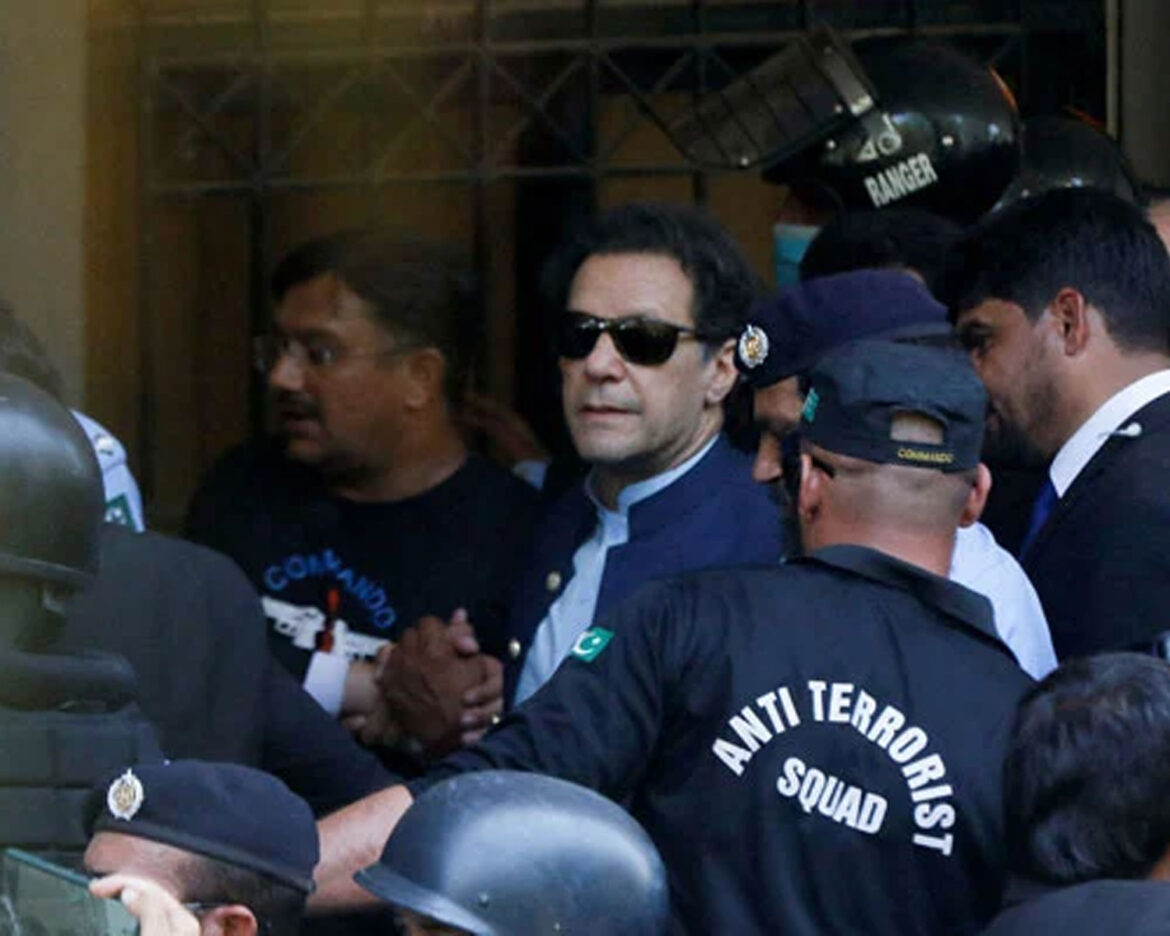Pakistan Tehreek-e-Insaf (PTI) founder Imran Khan, alongside several key party figures, has been acquitted by a district and sessions court in two cases related to the long march vandalism. Among those cleared of charges are Shah Mahmood Qureshi, Asad Umar, Shireen Mazari, and others.
The cases, stemming from alleged violations of Section 144, were registered in the Kohsar and Karachi Company police stations. The verdict, issued during the hearing of acquittal pleas, marks a pivotal moment for Khan and his colleagues.
Judicial Magistrate Shahzad Khan delivered the verdict on one case, while Judicial Magistrate Mureed Abbas announced the decision on the other. The defense argued vehemently, highlighting the absence of evidence and claiming political vendetta as the driving force behind the charges.
Khan’s lawyer, Naeem Panjotha, reiterated that the cases lacked substance and were driven by political motives. He emphasized that no notification enforcing Section 144 was issued in the capital, undermining the basis of the charges.
This development follows Khan’s recent acquittal on May 15 in two cases linked to the May 9 vandalism incidents. Despite these legal victories, Khan remains incarcerated in Adiala jail, entangled in various allegations related to the post-arrest violence.
In a separate legal proceeding, the Islamabad High Court granted bail to Khan on May 16 in the £190 million National Crime Agency settlement reference. These legal maneuvers add layers of complexity to Khan’s legal battles, underscoring the high-stakes political landscape in Pakistan.



